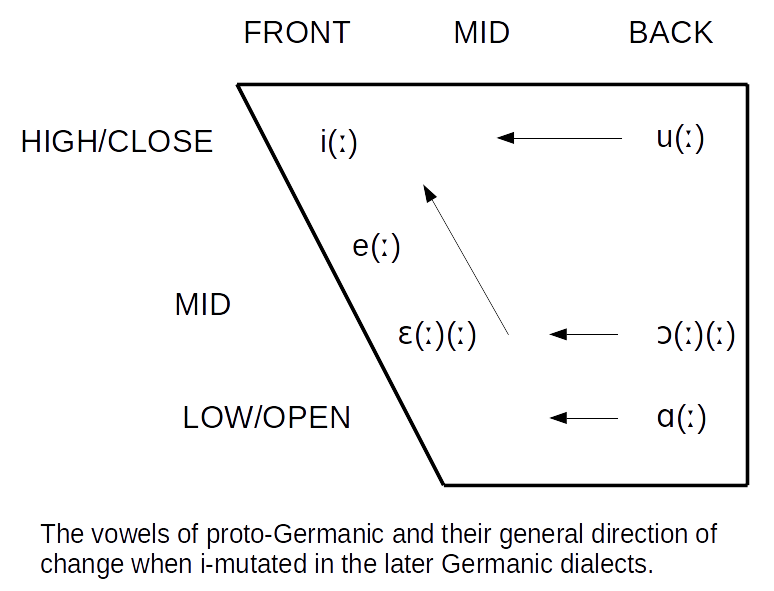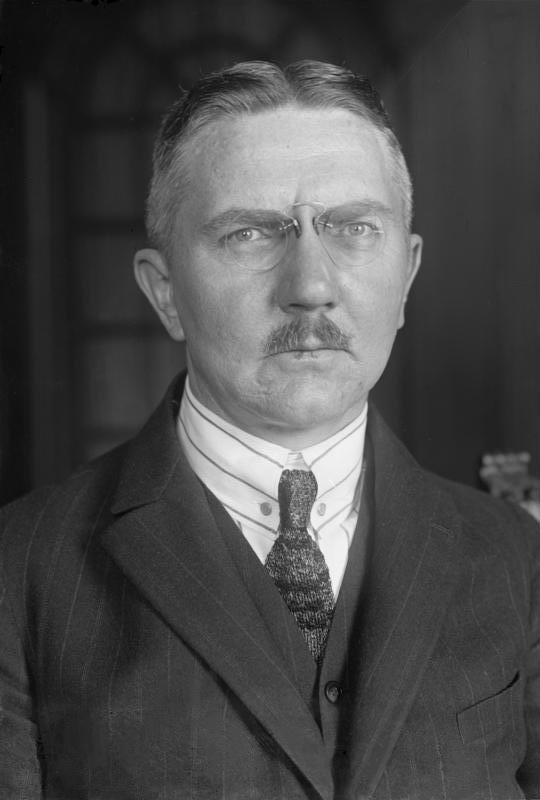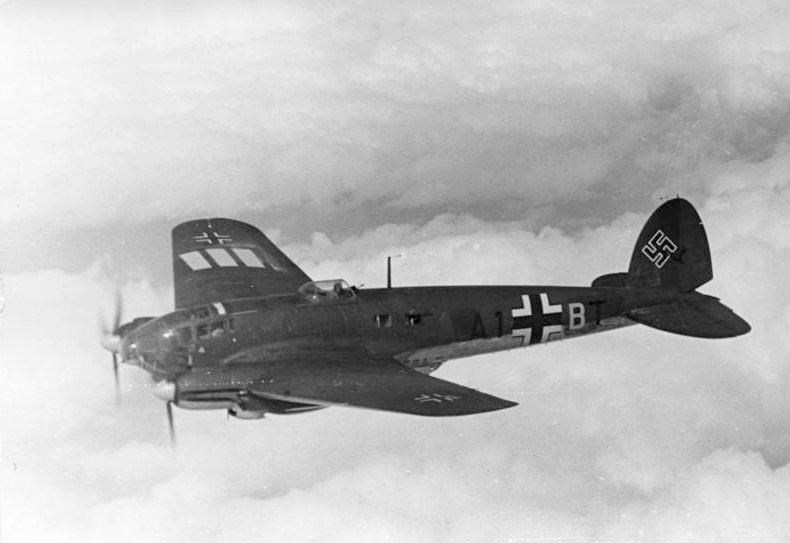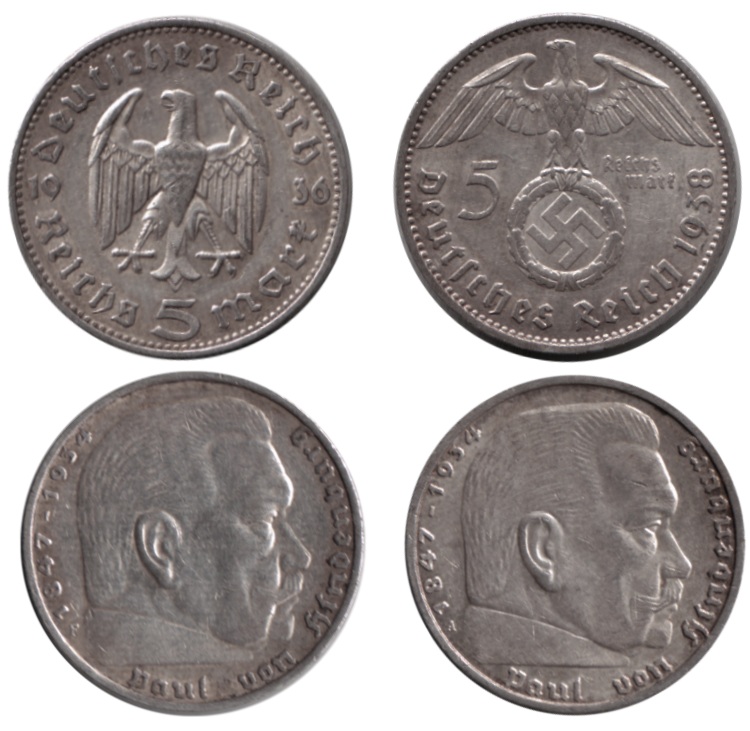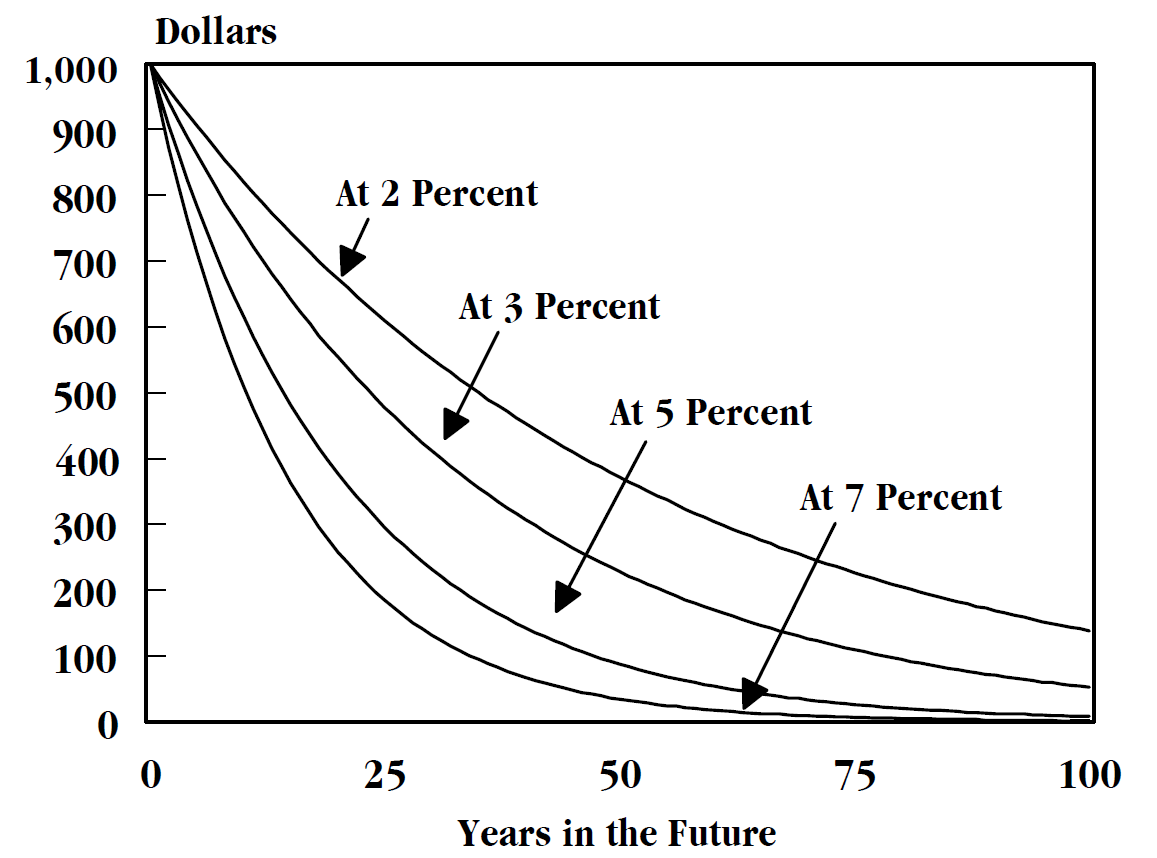|
Oeffa Bills
Öffa bills ("ö" is a Germanic umlaut that can be transcribed "oe") or job-creation bills were promissory notes created in 1932 by the German government. They were aimed at additional fund-raising for public building initiatives and later for job creation schemes. The Öffa bills were the blueprint for the Mefo bills which followed the same scheme. History In 1932, Öffa bills were created by the second cabinet under chancellor Heinrich Brüning after consultation with the then President of the Reichsbank, Hans Luther. The bills were issued by the ''Deutsche Gesellschaft für öffentliche Arbeiten Aktiengesellschaft, AG'' ( en, German Society for Public Works Public limited company, plc), founded 1 August 1930, and rediscounted by the Reichsbank. With the capital thus raised, the ''Deutsche Gesellschaft für öffentliche Arbeiten AG'' financed public building initiatives. It was a shell company without sufficient shareholders' equity. Nevertheless, the bills were Discountin ... [...More Info...] [...Related Items...] OR: [Wikipedia] [Google] [Baidu] |
Germanic Umlaut
The Germanic umlaut (sometimes called i-umlaut or i-mutation) is a type of linguistic umlaut in which a back vowel changes to the associated front vowel ( fronting) or a front vowel becomes closer to (raising) when the following syllable contains , , or . It took place separately in various Germanic languages starting around AD 450 or 500 and affected all of the early languages except Gothic. An example of the resulting vowel alternation is the English plural ''foot ~ feet'' (from Proto-Germanic , pl. ). Germanic umlaut, as covered in this article, does not include other historical vowel phenomena that operated in the history of the Germanic languages such as Germanic a-mutation and the various language-specific processes of u-mutation, nor the earlier Indo-European ablaut (''vowel gradation''), which is observable in the conjugation of Germanic strong verbs such as ''sing/sang/sung''. While Germanic umlaut has had important consequences for all modern Germanic languag ... [...More Info...] [...Related Items...] OR: [Wikipedia] [Google] [Baidu] |
Great Depression
The Great Depression (19291939) was an economic shock that impacted most countries across the world. It was a period of economic depression that became evident after a major fall in stock prices in the United States. The economic contagion began around September and led to the Wall Street stock market crash of October 24 (Black Thursday). It was the longest, deepest, and most widespread depression of the 20th century. Between 1929 and 1932, worldwide gross domestic product (GDP) fell by an estimated 15%. By comparison, worldwide GDP fell by less than 1% from 2008 to 2009 during the Great Recession. Some economies started to recover by the mid-1930s. However, in many countries, the negative effects of the Great Depression lasted until the beginning of World War II. Devastating effects were seen in both rich and poor countries with falling personal income, prices, tax revenues, and profits. International trade fell by more than 50%, unemployment in the U.S. rose to 23% and ... [...More Info...] [...Related Items...] OR: [Wikipedia] [Google] [Baidu] |
Hjalmar Schacht
Hjalmar Schacht (born Horace Greeley Hjalmar Schacht; 22 January 1877 – 3 June 1970, ) was a German economist, banker, centre-right politician, and co-founder in 1918 of the German Democratic Party. He served as the Currency Commissioner and President of the Reichsbank under the Weimar Republic. He was a fierce critic of his country's post-World War I reparations obligations. He served in Adolf Hitler's government as President of the Central Bank (''Reichsbank'') 1933–1939 and as Minister of Economics (August 1934 – November 1937). While Schacht was for a time feted for his role in the German "economic miracle", he opposed elements of Hitler's policy of German re-armament insofar as it violated the Treaty of Versailles and (in his view) disrupted the German economy. His views in this regard led Schacht to clash with Hitler and most notably with Hermann Göring. He resigned as President of the Reichsbank in January 1939. He remained as a Minister-without-portfolio, and ... [...More Info...] [...Related Items...] OR: [Wikipedia] [Google] [Baidu] |
German Re-armament
German rearmament (''Aufrüstung'', ) was a policy and practice of rearmament carried out in Germany during the interwar period (1918–1939), in violation of the Treaty of Versailles which required German disarmament after WWI to prevent Germany from starting another war. It began on a small, secret, and informal basis shortly after the treaty was signed, but it was openly and massively expanded after the Nazi Party came to power in 1933. Despite its scale, German re-armament remained a largely covert operation, carried out using front organizations such as glider clubs for training pilots and sporting clubs, and Nazi SA militia groups for teaching infantry combat techniques. Front companies like MEFO were set up to finance the rearmament by placing massive orders with Krupp, Siemens, Gutehofnungshütte, and Rheinmetall for weapons forbidden by the Treaty of Versailles. Carl von Ossietzky exposed the reality of the German rearmament in 1931 and his disclosures won him the ... [...More Info...] [...Related Items...] OR: [Wikipedia] [Google] [Baidu] |
Adolf Hitler
Adolf Hitler (; 20 April 188930 April 1945) was an Austrian-born German politician who was dictator of Nazi Germany, Germany from 1933 until Death of Adolf Hitler, his death in 1945. Adolf Hitler's rise to power, He rose to power as the leader of the Nazi Party, becoming the Chancellor of Germany, chancellor in 1933 and then taking the title of in 1934. During his dictatorship, he initiated European theatre of World War II, World War II in Europe by invasion of Poland, invading Poland on 1 September 1939. He was closely involved in military operations throughout the war and was central to the perpetration of the Holocaust: the genocide of Holocaust victims, about six million Jews and millions of other victims. Hitler was born in Braunau am Inn in Austria-Hungary and was raised near Linz. He lived in Vienna later in the first decade of the 1900s and moved to Germany in 1913. He was decorated during his Military career of Adolf Hitler, service in the German Army in Worl ... [...More Info...] [...Related Items...] OR: [Wikipedia] [Google] [Baidu] |
Kurt Von Schleicher
Kurt Ferdinand Friedrich Hermann von Schleicher (; 7 April 1882 – 30 June 1934) was a German general and the last chancellor of Germany (before Adolf Hitler) during the Weimar Republic. A rival for power with Hitler, Schleicher was murdered by Hitler's SS during the Night of the Long Knives in 1934. Schleicher was born into a military family in Brandenburg an der Havel on 7 April 1882. Entering the Prussian Army as a lieutenant in 1900, he rose to become a General Staff officer in the Railway Department of the German General Staff and served in the General Staff of the Supreme Army Command during World War I. Schleicher served as liaison between the Army and the new Weimar Republic during the German Revolution of 1918–1919. An important player in the Reichswehr's efforts to avoid the restrictions of the Treaty of Versailles, Schleicher rose to power as head of the Reichswehr's Armed Forces Department and was a close advisor to President Paul von Hindenburg from 1926 onward. F ... [...More Info...] [...Related Items...] OR: [Wikipedia] [Google] [Baidu] |
Inflation
In economics, inflation is an increase in the general price level of goods and services in an economy. When the general price level rises, each unit of currency buys fewer goods and services; consequently, inflation corresponds to a reduction in the purchasing power of money. The opposite of inflation is deflation, a sustained decrease in the general price level of goods and services. The common measure of inflation is the inflation rate, the annualized percentage change in a general price index. As prices do not all increase at the same rate, the consumer price index (CPI) is often used for this purpose. The employment cost index is also used for wages in the United States. Most economists agree that high levels of inflation as well as hyperinflation—which have severely disruptive effects on the real economy—are caused by persistent excessive growth in the money supply. Views on low to moderate rates of inflation are more varied. Low or moderate inflation may be attri ... [...More Info...] [...Related Items...] OR: [Wikipedia] [Google] [Baidu] |
Reichsmark
The (; sign: ℛℳ; abbreviation: RM) was the currency of Germany from 1924 until 20 June 1948 in West Germany, where it was replaced with the , and until 23 June 1948 in East Germany, where it was replaced by the East German mark. The Reichsmark was subdivided into 100 s (Rpf or ℛ₰). The Mark is an ancient Germanic weight measure, traditionally a half pound, later used for several coins; whereas (''realm'' in English), comes from the official name for the German state from 1871 to 1945, . History The Reichsmark was introduced in 1924 as a permanent replacement for the Papiermark. This was necessary due to the 1920s German inflation which had reached its peak in 1923. The exchange rate between the old Papiermark and the Reichsmark was = 1012 ℳ (one trillion in American English and French, one billion in German and other European languages and British English of the time; see long and short scale). To stabilize the economy and to smooth the transition, the Papierm ... [...More Info...] [...Related Items...] OR: [Wikipedia] [Google] [Baidu] |
Money Creation
Money creation, or money issuance, is the process by which the money supply of a country, or of an economic or monetary region,Such as the Eurozone or ECCAS is increased. In most modern economies, money creation is controlled by the central banks. Money issued by central banks is termed base money. Central banks can increase the quantity of base money directly, by engaging in open market operations. However, the majority of the money supply is created by the commercial banking system in the form of bank deposits. Bank loans issued by commercial banks that practice fractional reserve banking expands the quantity of broad money to more than the original amount of base money issued by the central bank. Central banks monitor the amount of money in the economy by measuring monetary aggregates (termed broad money), consisting of cash and bank deposits. Money creation occurs when the quantity of monetary aggregates increase.For example, in the United States, money supply measured as M2 ... [...More Info...] [...Related Items...] OR: [Wikipedia] [Google] [Baidu] |
Discounting
Discounting is a financial mechanism in which a debtor obtains the right to delay payments to a creditor, for a defined period of time, in exchange for a charge or fee.See "Time Value", "Discount", "Discount Yield", "Compound Interest", "Efficient Market", "Market Value" and "Opportunity Cost" in Downes, J. and Goodman, J. E. ''Dictionary of Finance and Investment Terms'', Baron's Financial Guides, 2003. Essentially, the party that owes money in the present purchases the right to delay the payment until some future date.See "Discount", "Compound Interest", "Efficient Markets Hypothesis", "Efficient Resource Allocation", "Pareto-Optimality", "Price", "Price Mechanism" and "Efficient Market" in Black, John, ''Oxford Dictionary of Economics'', Oxford University Press, 2002. This transaction is based on the fact that most people prefer current interest to delayed interest because of mortality effects, impatience effects, and salience effects. The discount, or charge, is the difference ... [...More Info...] [...Related Items...] OR: [Wikipedia] [Google] [Baidu] |
Promissory Note
A promissory note, sometimes referred to as a note payable, is a legal instrument (more particularly, a financing instrument and a debt instrument), in which one party (the ''maker'' or ''issuer'') promises in writing to pay a determinate sum of money to the other (the ''payee''), either at a fixed or determinable future time or on demand of the payee, under specific terms and conditions. Overview The terms of a note usually include the principal amount, the interest rate if any, the parties, the date, the terms of repayment (which could include interest) and the maturity date. Sometimes, provisions are included concerning the payee's rights in the event of a default, which may include foreclosure of the maker's assets. In foreclosures and contract breaches, promissory notes under CPLR 5001 allow creditors to recover prejudgement interest from the date interest is due until liability is established. For loans between individuals, writing and signing a promissory note are often ... [...More Info...] [...Related Items...] OR: [Wikipedia] [Google] [Baidu] |
Public Limited Company
A public limited company (legally abbreviated to PLC or plc) is a type of public company under United Kingdom company law, some Commonwealth of Nations, Commonwealth jurisdictions, and the Republic of Ireland. It is a limited liability company whose shares may be freely sold and traded to the public (although a PLC may also be privately held, often by another PLC), with a minimum share capital of £50,000 and usually with the letters PLC after its name. Similar companies in the United States are called Public company, ''publicly traded companies''. Public limited companies will also have a separate legal identity. A PLC can be either an unlisted or listed company on the stock exchanges. In the United Kingdom, a public limited company usually must include the words "public limited company" or the abbreviation "PLC" or "plc" at the end and as part of the legal company name. Welsh companies may instead choose to end their names with , an abbreviation for '. However, some public l ... [...More Info...] [...Related Items...] OR: [Wikipedia] [Google] [Baidu] |
